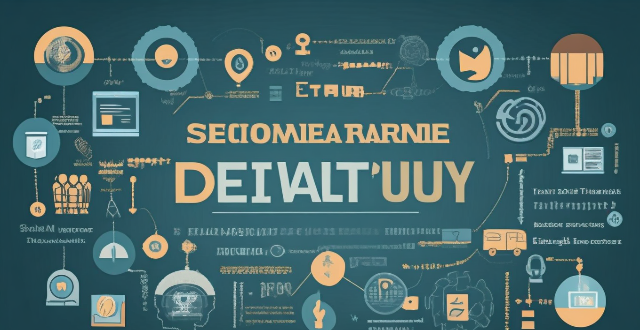The text discusses the concept of digital identity, which encompasses all online information about an individual or entity. It includes personally identifiable information (PII), online accounts, digital footprints, and behavioral data. The importance of digital identity is highlighted in terms of security and privacy, trust and verification, personalization and convenience, and reputation management. Managing one's digital identity is crucial for protecting against fraud, preserving privacy, ensuring secure online transactions, accessing services, enjoying tailored experiences, streamlining processes, and maintaining a positive online presence.

Digital Identity: Definition and Importance
What is Digital Identity?
Digital identity refers to the information about an individual, organization, or other entity that is available online. It encompasses a range of data points, including personally identifiable information (PII), online behaviors, digital footprints, and more. In essence, your digital identity is the sum total of your online presence and how you are perceived in the digital world.
Key Components of Digital Identity:
- Personally Identifiable Information (PII): This includes basic details like name, date of birth, address, social security number, and biometric data.
- Online Accounts: Email addresses, social media profiles, and any other online accounts associated with an individual.
- Digital Footprints: This includes search history, website cookies, IP addresses, and other data points left behind during online activities.
- Behavioral Data: Information about what you do online, such as shopping habits, content you consume, and interactions on social platforms.
Why is Digital Identity Important?
Security and Privacy:
- Protection from Fraud: A strong digital identity can help prevent identity theft and fraud since it ensures that only authorized individuals have access to sensitive information.
- Privacy Preservation: Managing your digital identity allows you to control what personal information is visible to others and protect your privacy.
Trust and Verification:
- Online Transactions: In e-commerce and banking, a verified digital identity is essential for secure transactions and trust between parties.
- Access to Services: Many services require verification of identity for access, such as age-restricted content, financial services, or government benefits.
Personalization and Convenience:
- Tailored Experiences: Companies use digital identity data to personalize user experiences, providing relevant content and advertising.
- Streamlined Processes: Digital identification can simplify authentication processes, reducing the need for multiple passwords or repeated verification steps.
Reputation Management:
- Online Presence: Your digital identity affects how others perceive you, which can impact professional opportunities and social interactions.
- Control Over Information: By managing your digital identity, you can curate the information that represents you online, maintaining a positive reputation.
Conclusion
In today's interconnected world, digital identity plays a crucial role in our lives. It determines not only how we are perceived but also how secure and private our online activities are. As we continue to live more of our lives online, understanding and managing our digital identity becomes increasingly important for both personal and professional success.